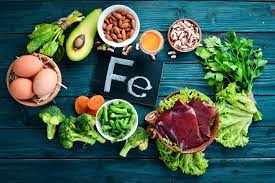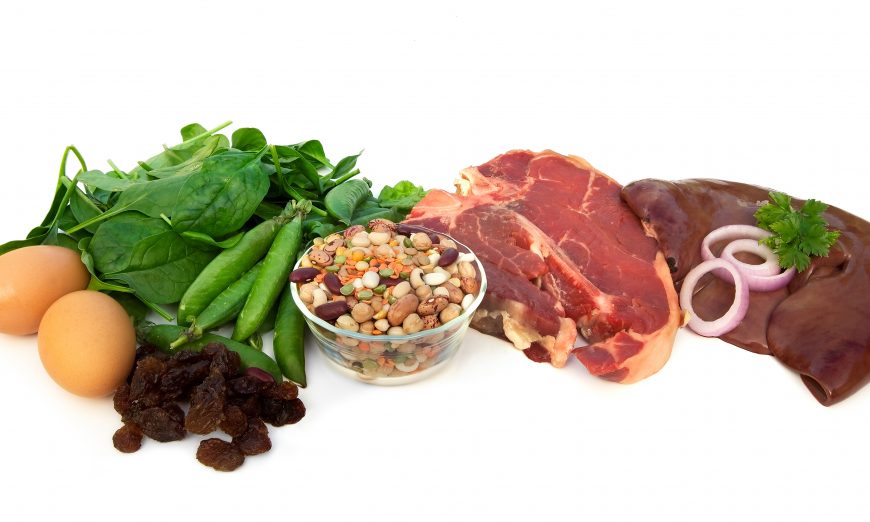I became your enemy because I tell you the truth
“You can fool some of the people all the time and all the people some of the time,
but you can’t fool all the people all the time.” A. Lincoln
The health of the human body requires a variety of nutrients, and iron is one of them. Iron has the important function of transporting oxygen throughout the body, and an iron deficiency can affect our health. While there are many ways to supplement iron, traditional Chinese medicine believes that the safest way is dietary supplements.
It’s important to be careful not to take too much, however. Iron presents health risks when taken in excess.
Iron, an important component of hemoglobin, myoglobin, and cytochrome, is an indispensable element in the body. However, the body can’t produce iron on its own and has to derive it from food. If iron intake is too low and can’t make up for the body’s daily loss, it can lead to anemia.
Symptoms of iron deficiency include fatigue, cold hands and feet, tachycardia, shortness of breath, loss of appetite, and brittle nails. Iron deficiency in pregnant women can affect the future cognitive development of their children and even lead to anemia, low birth weight, and premature birth. Iron deficiency in children under 2 may also have irreversible serious consequences for brain development.
Iron is absorbed mainly through the gastrointestinal tract, transferred from the gut to the blood for storage, and then supplied to needed tissues and organs through the blood, Li Qing, a Chinese medicine doctor based in Japan, told The Epoch Times.
“[People] can usually get enough iron by having a balanced diet,” he said. “However, those with hemorrhagic anemia due to surgery, serious injury, gastrointestinal bleeding, gastrointestinal cancer, and other factors should take iron supplements under the guidance of a doctor.”
Foods With High Iron Content
For dietary supplementation, one can choose foods rich in iron to improve iron deficiency anemia. Iron-rich foods include (based on the amount of iron in 100g of cooked food):
- Beans such as red beans, peas, soybeans, black beans, dried bean milk cream in tight rolls, etc. Among them, black beans contain 7.2 mg of iron and dried bean milk cream has 16.5 mg.
- Seafood such as clams, which contain 27.5 mg of iron.
- Vegetables such as spinach and broccoli, which have 3.6 mg and 1.0 mg of iron, respectively. Spinach is also a good source of vitamin C, which greatly improves the absorption of iron.
- Nuts such as hazelnuts, almonds, and walnuts, which have 3.2 mg, 3.0 mg, and 2.9 mg of iron, respectively.
- Dried fruits such as raisins, black dates, and red dates, which have 3.8 mg, 3.7 mg, and 2.3 mg of iron, respectively.
It’s worth noting that pork liver contains 17 mg of iron. The liver and other organs of most animals are rich in iron as well. However, it isn’t recommended to eat them too often because they are high in cholesterol and fat.
To better absorb iron-rich foods, Li suggests combining them with fruits and vegetables rich in vitamin C, such as kiwifruit, orange, strawberry, tomato, and green leafy vegetables.
In addition, using an iron pot to cook can also help with daily iron supplements. The iron on the wall of the skillet or wok falls off under the scrape of utensils. After coming into contact with acidic substances in food, chemical reactions occur and produce iron ions, which mix into food and increase the iron content in food. In this way, the body can constantly be replenished with trace iron elements.
Those who don’t have iron deficiency anemia shouldn’t eat a large amount of food with high iron content, Li says, so as to avoid iron excess, which may affect liver function.
All it takes for Evil to triumph is for good people to do nothing
https://www.theepochtimes.com/health/symptoms-of-iron-deficiency-and-where-to-find-it-in-food_5101566.html?utm_source=goodeveningnoe-nonai&src_src=goodeveningnoe-nonai&utm_campaign=gv-2023-03-12-nonai&src_cmp=gv-2023-03-12-nonai&utm_medium=email&est=JemVxn0PBy8
Michael Loyman


